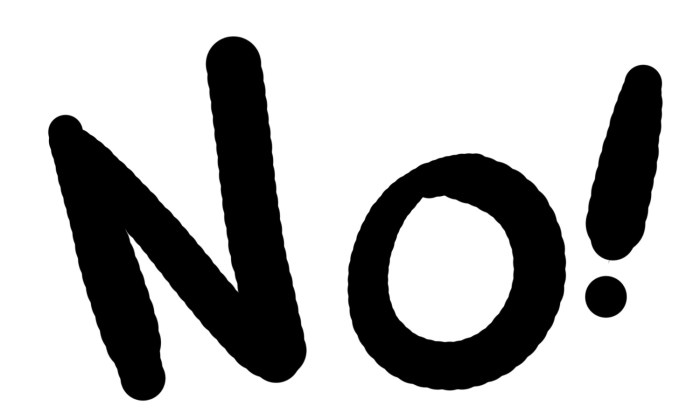Can you eat fish on a vegan diet? This question sparks a fascinating exploration into the principles, nutritional considerations, and ethical implications of veganism. Delve into this comprehensive guide as we navigate the complexities of fish consumption within a vegan lifestyle.
Vegans abstain from consuming all animal products, including fish, due to ethical concerns regarding animal welfare and environmental sustainability. However, some individuals may question whether fish, as aquatic creatures, fall under the umbrella of veganism.
Overview
A vegan diet is a plant-based diet that excludes all animal products, including meat, poultry, fish, eggs, dairy, and honey. Vegans choose this lifestyle for various reasons, such as ethical concerns about animal welfare, environmental sustainability, or health benefits.
Exclusion of Fish, Can you eat fish on a vegan diet
Fish is an animal product and is therefore not included in a vegan diet. Vegans believe that fish have the capacity to experience pain and suffering, and they reject the idea of killing and consuming them for food. Additionally, the fishing industry has significant environmental impacts, including overfishing, habitat destruction, and pollution.
Nutritional Considerations

Adhering to a vegan diet necessitates careful attention to nutrient intake to ensure optimal health and well-being. Fish, a common source of essential nutrients in non-vegan diets, must be replaced with plant-based alternatives that provide similar nutritional value.
The following table compares the nutritional content of fish and plant-based alternatives:
| Nutrient | Fish (100g) | Plant-Based Alternative (100g) |
|---|---|---|
| Protein | 20g | 15-20g |
| Omega-3 Fatty Acids | 1g | 1-2g |
| Vitamin B12 | 2.5mcg | 0mcg |
| Iron | 1mg | 2-3mg |
| Calcium | 50mg | 100-200mg |
As evident from the table, plant-based alternatives provide comparable levels of protein and iron. However, it is crucial to ensure adequate intake of omega-3 fatty acids and vitamin B12, which are primarily obtained from fish in non-vegan diets.
Omega-3 Fatty Acids
Omega-3 fatty acids are essential for heart, brain, and eye health. Plant-based sources of omega-3 fatty acids include flaxseeds, chia seeds, walnuts, and algae oil. It is recommended to consume at least 250mg of EPA and DHA omega-3 fatty acids daily.
Vitamin B12
Vitamin B12 is essential for red blood cell production and nervous system function. Plant-based foods do not naturally contain vitamin B12, so it is crucial to consume fortified foods or supplements to ensure adequate intake.
Health Implications

Vegan diets have been linked to several potential health benefits, including a reduced risk of heart disease and certain types of cancer. Studies have shown that vegans tend to have lower levels of cholesterol and blood pressure, which are both risk factors for heart disease.
Additionally, vegan diets are rich in fiber, antioxidants, and phytochemicals, which have been shown to protect against the development of cancer.
Potential Risks of Excluding Fish
While vegan diets can be healthy and nutritious, it is important to be aware of the potential risks associated with excluding fish from the diet. One of the most significant concerns is the deficiency of omega-3 fatty acids, which are essential for brain health, heart health, and immune function.
Fish is a rich source of omega-3 fatty acids, and vegans need to find alternative sources of these nutrients.
Environmental Impact
A vegan diet offers numerous environmental benefits, particularly regarding greenhouse gas emissions and marine resource conservation.
The production of animal products, including fish, contributes significantly to greenhouse gas emissions. Raising livestock for food requires vast amounts of land, water, and feed, leading to deforestation, water pollution, and the release of methane, a potent greenhouse gas. In contrast, plant-based foods have a much lower environmental impact, requiring less land, water, and energy to produce.
Conservation of Marine Resources
Fish consumption has a substantial impact on ocean ecosystems. Overfishing, a major threat to marine biodiversity, is driven by the increasing demand for fish products. Unsustainable fishing practices, such as bottom trawling, can damage coral reefs and disrupt entire marine ecosystems.
By choosing a vegan diet, individuals can contribute to the conservation of marine resources. Reducing the demand for fish helps protect fish populations, preserve marine habitats, and promote the health and balance of ocean ecosystems.
Ethical Considerations
The ethical implications of consuming fish from a vegan perspective stem from the belief that all animals deserve respect and compassion. Vegans believe that fish, like other animals, are sentient beings capable of experiencing pain and suffering.
The practice of fish farming raises concerns about the welfare of the animals involved. Fish are often kept in overcrowded and unsanitary conditions, leading to disease, injury, and stress. Overfishing, another major concern, depletes fish populations and disrupts marine ecosystems.
If you’re looking for a diet that combines the best of both worlds, the pesco pollo vegetarian diet might be the perfect fit for you. This flexible eating plan allows you to enjoy the benefits of a vegetarian diet while still indulging in occasional fish and poultry.
With its emphasis on whole, unprocessed foods, the pesco pollo vegetarian diet is a healthy and sustainable way to nourish your body.
Fish Farming and Welfare
- Overcrowded and unsanitary conditions: Fish farms often confine large numbers of fish in small enclosures, leading to poor water quality, increased risk of disease, and reduced mobility.
- Painful procedures: Fish are subjected to painful procedures such as fin clipping, which can cause chronic pain and stress.
- High mortality rates: The intensive conditions in fish farms can result in high mortality rates, with some species experiencing up to 50% mortality within the first year.
Overfishing and Environmental Impact
- Depletion of fish populations: Overfishing occurs when fish are harvested at a rate faster than they can reproduce, leading to population declines and even species extinction.
- Disruption of marine ecosystems: Overfishing can disrupt the balance of marine ecosystems, affecting food chains and biodiversity.
- Bycatch: Fishing methods often result in the unintentional capture of non-target species, known as bycatch. Bycatch can include endangered species, such as sea turtles and dolphins.
Plant-Based Alternatives to Fish
A vegan diet excludes all animal products, including fish. However, there are numerous plant-based alternatives that can provide similar nutritional value and culinary experiences.
These alternatives are rich in protein, omega-3 fatty acids, and other essential nutrients found in fish.
Looking for a flexible dietary approach that combines the best of both worlds? Consider the pesco pollo vegetarian diet. This unique plan allows for the consumption of seafood and poultry while excluding red meat and processed foods. The result is a well-rounded diet that promotes heart health, reduces inflammation, and provides essential nutrients.
Tofu
- Made from soybeans, tofu is a versatile plant-based protein that can be used in a wide variety of dishes.
- It is a good source of protein, iron, and calcium.
Tempeh
- Also made from soybeans, tempeh is a fermented product with a nutty flavor.
- It is a good source of protein, fiber, and probiotics.
Seaweed
- Seaweed is a type of algae that is a good source of iodine, iron, and calcium.
- It can be eaten raw, cooked, or dried and used as a seasoning.
Final Thoughts

Ultimately, the decision of whether or not to consume fish on a vegan diet is a personal one, influenced by individual beliefs, nutritional needs, and environmental concerns. By carefully considering the ethical, nutritional, and environmental implications, individuals can make informed choices that align with their values.
FAQ Insights: Can You Eat Fish On A Vegan Diet
Is it possible to get enough omega-3 fatty acids on a vegan diet?
Yes, plant-based sources such as flaxseed, chia seeds, and walnuts provide omega-3 fatty acids. Additionally, fortified foods and supplements can help ensure adequate intake.
What are some plant-based alternatives to fish?
Tofu, tempeh, and seaweed are excellent plant-based alternatives to fish, offering similar nutritional value and culinary experiences.